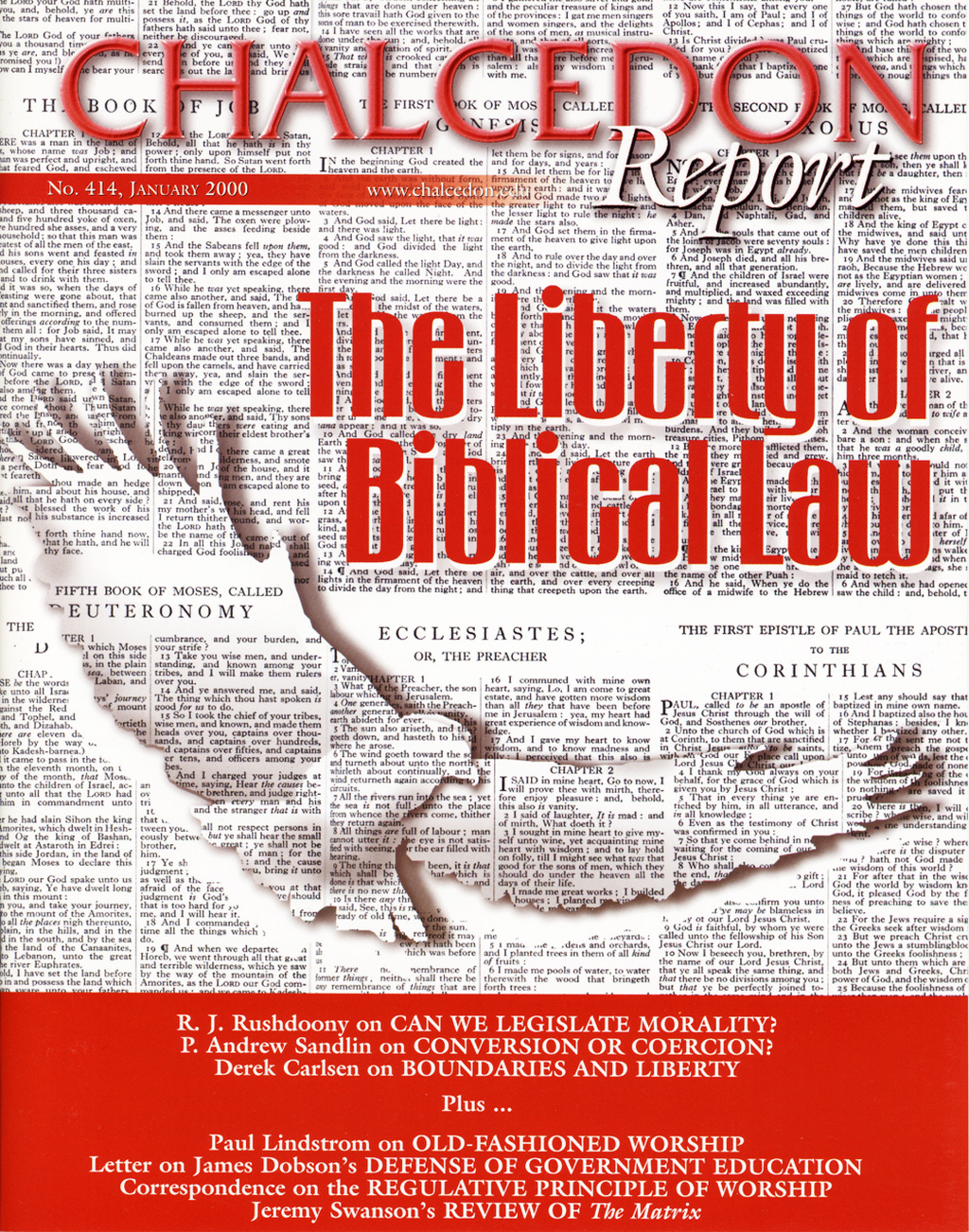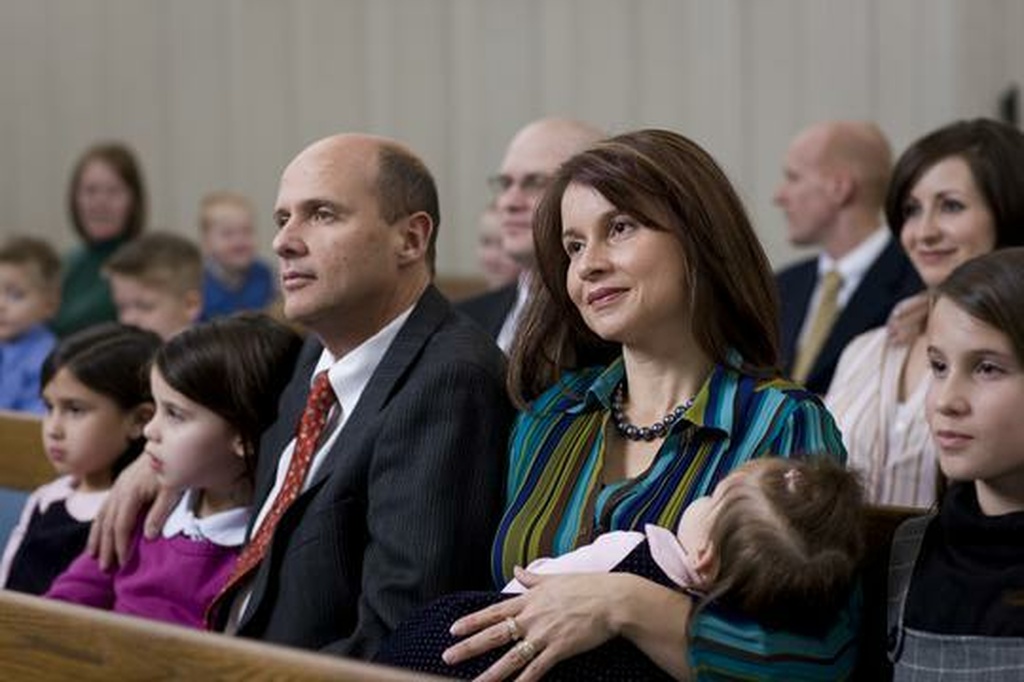
Magazine Issue
January 2000 Articles:
Conversion or Coercion?
- P. Andrew Sandlin
Boundaries and Liberty
- Derek Carlsen
The Spiritual Basis of Romanticism
- Forrest W. Schultz
Report on the 1999 National Conference in Dallas, Texas
- Matt Bynum

The Importance of Old-Fashioned Worship: the Whole Family Worshipping Together at Church
- Paul Lindstrom
Review of "The Matrix"
- Jeremy Swanson
Letter to the Editor on Post-Secondary Government Education
- Kevin L. Clauson, M.A., J.D.
Letter to the Editor on James Dobson and Public Education
- P. Andrew Sandlin
What Difference Can One Person Make?
- Peter Hammond
All I Really Need to Know About Worship... I Don't Learn from the Regulative Principle (Part VIII)
- Steve M. Schlissel
Grossmann Letter to the Editor on the "Regulative Principle of Worship"
- Robert Grossmann